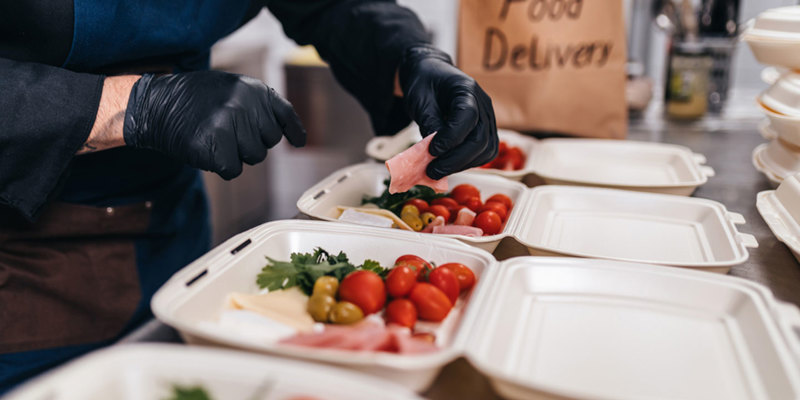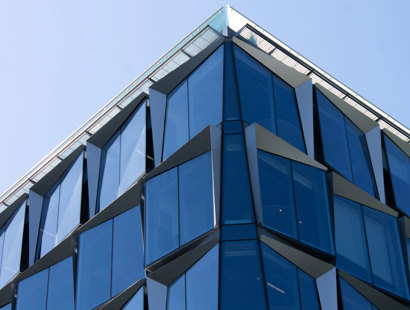
Dark kitchens—commercial lease considerations
Real estate associate, Richa Arora, delves into the concept of 'Dark Kitchens', highlighting the benefits and legal considerations for food entrepreneurs looking to operate in this emerging market.
What are Dark Kitchens?
Dark Kitchens function exclusively for the take-away trade preparing food solely for delivery as opposed to sit-in dining. There are no dining areas for customers - instead they function to meet the huge demand for food ordered online and delivered via take-away courier apps such as Deliveroo and Just Eat. The kitchens are often hidden from public view with no visible storefront or signage. A Dark Kitchen may run out of an existing restaurant, shared commercial spaces or purpose built facilities.
Dark Kitchens have grown in number significantly in recent years to meet the rising customer demand for the convenience of restaurant quality food ordered from the comfort of their homes.
Food entrepreneurs should consider the benefits these new venues provide and any legal issues before entering into commercial lease for a Dark Kitchens.
Benefits of Dark Kitchens
Dark Kitchens can be much more cost effective to run than a traditional restaurant. There is no need for front of house staff, expensive fit outs or the associated overheads of running both a commercial kitchen and a dining area under the same roof. They encourage food entrepreneurs to try out new ideas, menu items and cuisines and can allow them to test the market before committing to more expensive bricks and mortar restaurants. Often located in relatively inexpensive areas or industrial estates they allow a company to avoid the rents associated with high footfall or prime locations. Catering solely to the take-away trade lends itself to a streamlined operation and greater turnover of meals.
Lease considerations
Before establishing a Dark Kitchen in the UK one must think carefully about the commercial lease of the premises and ensuring it is sufficiently tailored to this relatively new type of premises.
Check the title deeds for the property for any restrictions which prohibit the intended use (food preparation). It is worth considering whether there are restrictions on trading hours and permitted noise levels. Are there necessary rights allowing the operator to install necessary kitchen apparatus in the property and gain access to its unit? These rights should be checked and if necessary incorporated into the lease.
The user provision in the lease should explicitly state that the tenant is permitted to use the property as a food operation and delivery business to also include the set-up of a commercial kitchen for preparing meals solely for delivery and take-out purposes. If the tenant is taking up a sub-lease or an assignment of an existing lease, a variation of the existing lease may be required if it doesn’t already include adequate user provisions.
In a situation where a restaurant is already operating or perhaps an existing Dark Kitchen is proposing to share possession (perhaps with its group company) or sub-let part of its premises to another Dark Kitchen (to spread its costs), the alienation provisions in the lease should allow these arrangements. Landlord’s consent is typically required in cases of sub-letting or assignment which may be included in a Dark Kitchen lease. In such situations, carve-outs should be considered with respect to the operator licensing or sub-letting out the individual kitchens within the leased property so that the landlord’s consent isn’t required.
Planning
From a planning perspective, it isn’t immediately clear what use class Dark Kitchens fall into. Local authorities are taking differing views on this subject. For instance, Camden Council considers the use to be sui generis (that is a use of its own kind which does not fall within a particular class) whilst other councils have included dark kitchens within use Class E (g) (iii) (Light Industrial)). The position will depend on the specific circumstances. Before entering into a lease you should seek specialist planning advice as to whether planning permission should be obtained and what use restrictions there might be as a result of any existing planning permissions or conditions.
Conclusion
Dark Kitchens present some novel problems for real-estate professionals. Lawyers and their clients should think carefully about the particular risks and opportunities in setting up a Dark Kitchen and ensure that the lease reflects their particular requirements.

Real estate legal news—October 2023
Welcome to the second edition of Russell-Cooke’s real estate legal news. It’s now been six months since we published our inaugural newsletter.
Get in touch
If you would like to speak with a member of the team you can contact our real estate planning and construction solicitors; Holborn office (Email Holborn) +44 (0)20 3826 7523; Kingston office (Email Kingston) +44 (0)20 3826 7518; Putney office (Email Putney) +44 (0)20 3826 7518 or complete our form.




